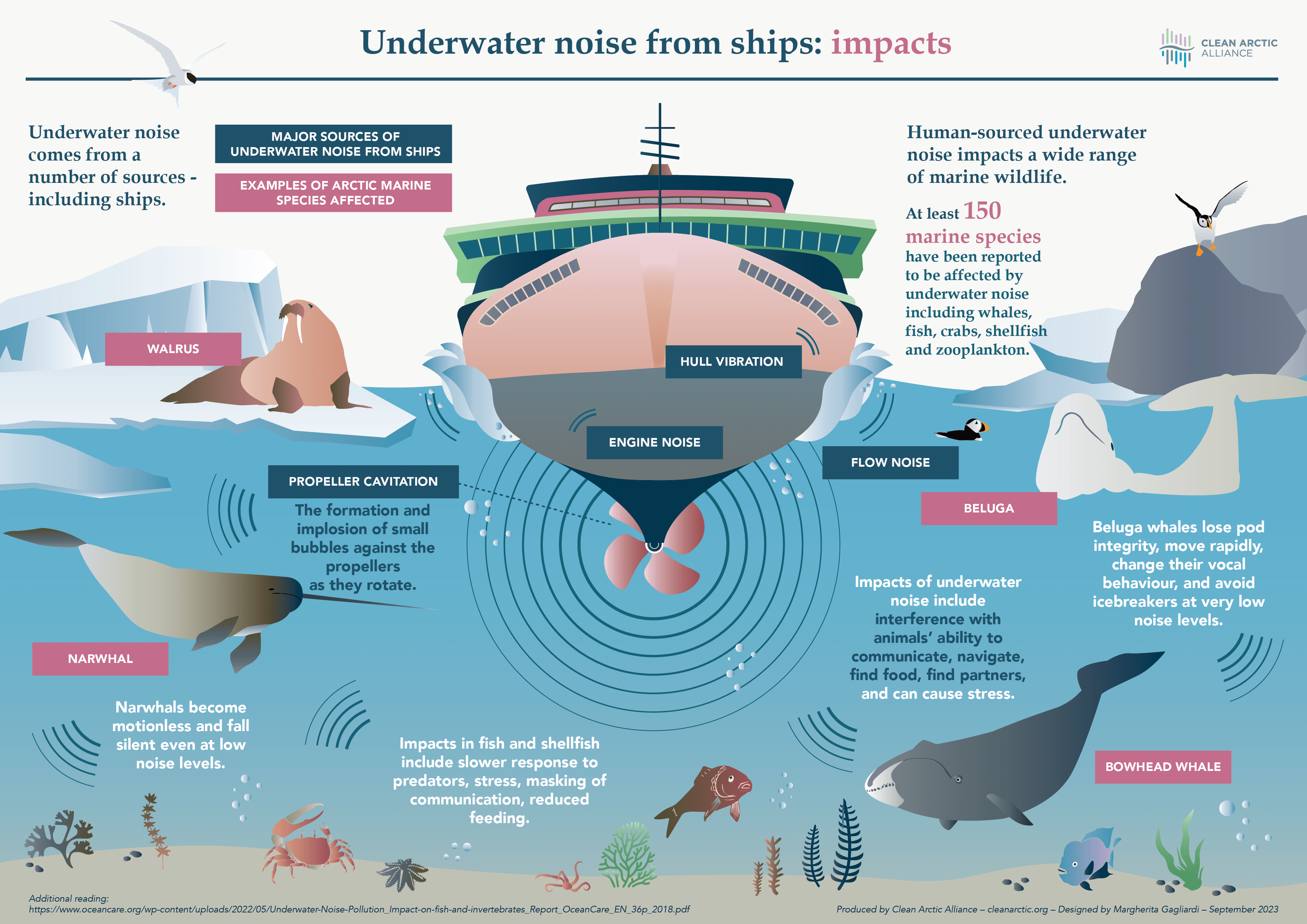Underwater Noise
![]()
Underwater noise from ships: The facts
For many marine organisms sound is the most important means of communication. Under water, vision is very restricted and without good hearing ability, elementary functions such as navigating, finding prey and partners can be hampered. This is of particular importance for marine mammals.
 Infographic: Underwater Noise From Ships: Impacts
Infographic: Underwater Noise From Ships: Impacts
The Arctic has been almost free of anthropogenic sound for a long time, but with increased human activity, the Arctic Ocean is becoming more noisy every year. An important source of continuous noise is shipping, more specifically the propeller and the engine. Since shipping has increased substantially during the last couple of decades, underwater noise is becoming an increasing problem, contributing to serious impact on the Arctic ecosystem.
The most important source of continuous underwater noise in shipping is cavitation, or production of vacuum bubbles by propellers. The noise produced by this process is dubbed masking, where the frequency of ship noise overlaps with sound produced and used by marine mammals.
International Policy
The International Maritime Organisation has developed voluntary guidelines for underwater noise in 2014. There are no signs that these guidelines have had any effect and in June 2021 the IMO agreed to “commence further work on underwater noise from ships”. Several member states and NGO’s have put in proposals for reduction of underwater noise and these will be discussed by the IMO subcommittee on Ship Design and Construction in 2022
Since worldwide regulations to mitigate continuous underwater noise by ships are currently not in place, noise mitigation measures are only applied in certain situations or for specific purposes.
The EU, in its Marine Framework Directive has set a descriptor for continuous underwater noise (D11C2): “ ..the spatial distribution, timeframe and levels of background noise is at such a level that it will not have adverse effects on marine ecosystems”
Watch video: Underwater Noise Webinar: Recent Innovations in Reducing URN from Ships (12 January 2022)
Further reading:
- International Maritime Organization: Underwater Noise
- WWF: Shipping and Underwater Noise – A growing risk to marine life worldwide
- WWF: Protect Arctic Whales From Underwater Noise
- WWF: The rising tide of underwater noise
- EU funded project SATURN: Solutions At Underwater Radiated Noise
- Port of Vancouver: Enhancing Cetacean Habitat and Observation (ECHO) Program
- Belgian Ministry for the North Sea: Solutions for underwater noise from shipping
- EMSA: Sounds: Status Of Underwater Noise From Shipping
- Underwater Noise Pollution from Shipping in the Arctic – Arctic Council/PAME

